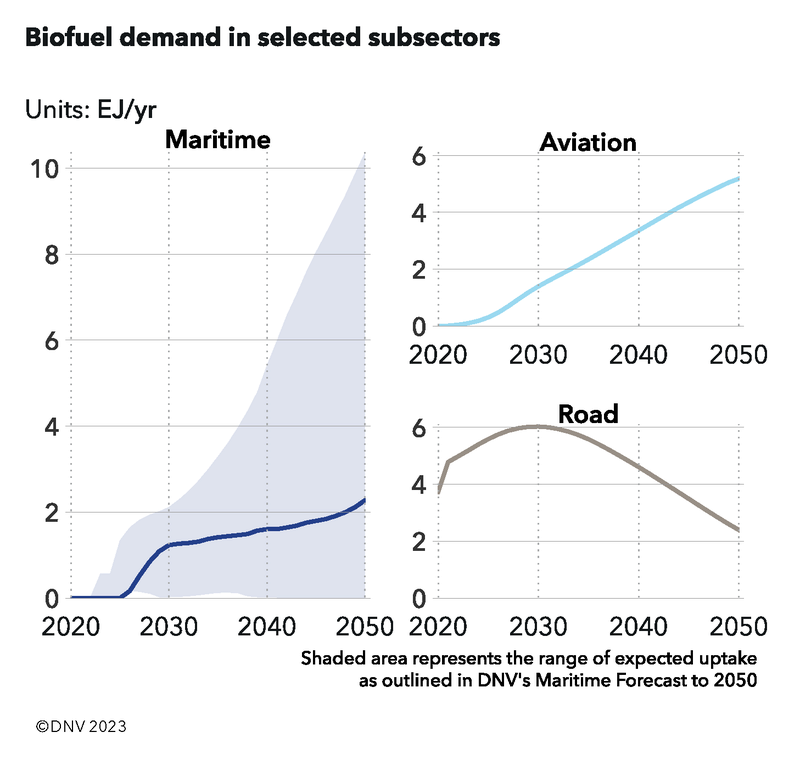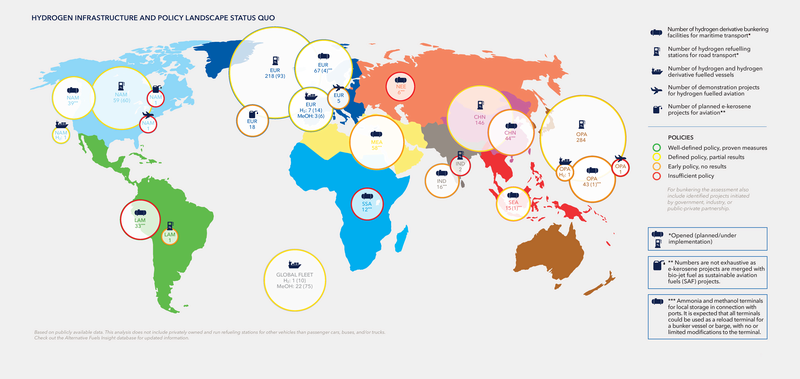DNV has published its Transport in Transition report to deep dive into the energy transition of transport which it identifies as the most dynamic of the energy demand sectors through to 2050.
According to Neil James Slater, Head of Media Relations, Energy Systems at DNV, transport has a severe emission challenge. Its share of overall emissions grows from 25% today to 30% by 2050 as large part of the transport system will remain fossil fuel dependent. Furthermore, as oil has staying power in aviation and maritime and strong policies are needed to ensure necessary decarbonization to hydrogen and sustainable biofuel.
Report key findings
- Transport has a severe emission challenge, its share of overall emissions grows from 25% today to 30% by 2050 as large part of the transport system will remain fossil fuel dependent.
- Transport of passengers and goods currently accounts for about a quarter of global energy-related CO2 emissions and will grow to 30% by 2050.
- Maritime sector energy mix will compromise 50% low- and zero carbon fuels in 2050.
- Oil has staying power in aviation and maritime. Strong policies are needed to ensure necessary decarbonization to hydrogen and sustainable biofuel.
There is a pressing need for reliable non-fossil fuels to support emission reductions, particularly in the maritime and aviation sectors.
… said Remi Eriksen, Group President and CEO at DNV
Key issues in the report regarding the use of sustainable energy sources in transport sectors through to 2050 are:
- Availability
- Technology development
- Costs
- Policy drivers
- Likely uptake
Electrification
Neil James Slater finds that the transport sector will be revolutionized by electrification but increase its share of overall emissions. Electricity will obtain only a 4% share, from short sea shipping and port stays for larger vessels. 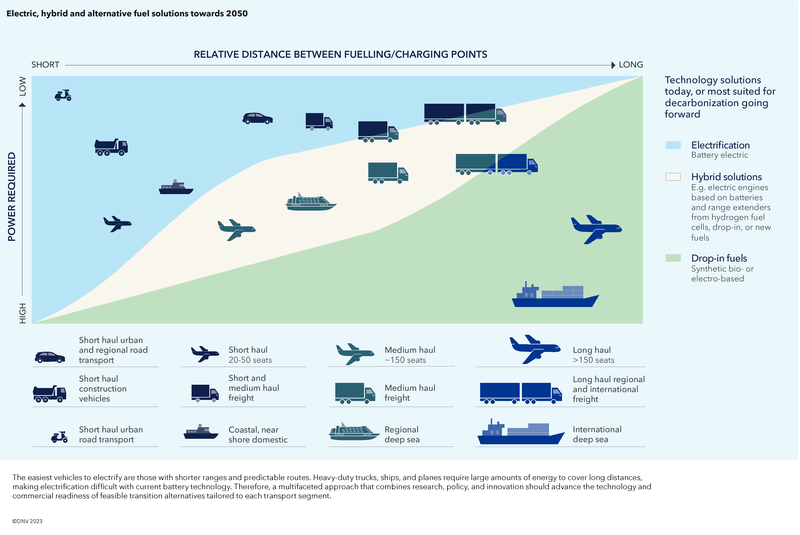
According to the report, electricity is continuing to gain traction in previously thought to be hard-to-electrify sectors including heavy trucking and aviation. Electricity’s share in transport will grow from 1% today to 23% in 2050. Sub Saharan Africa and North East Eurasia remain far away from establishing the infrastructure and producing the quantities of renewable electricity required to decarbonize road transport.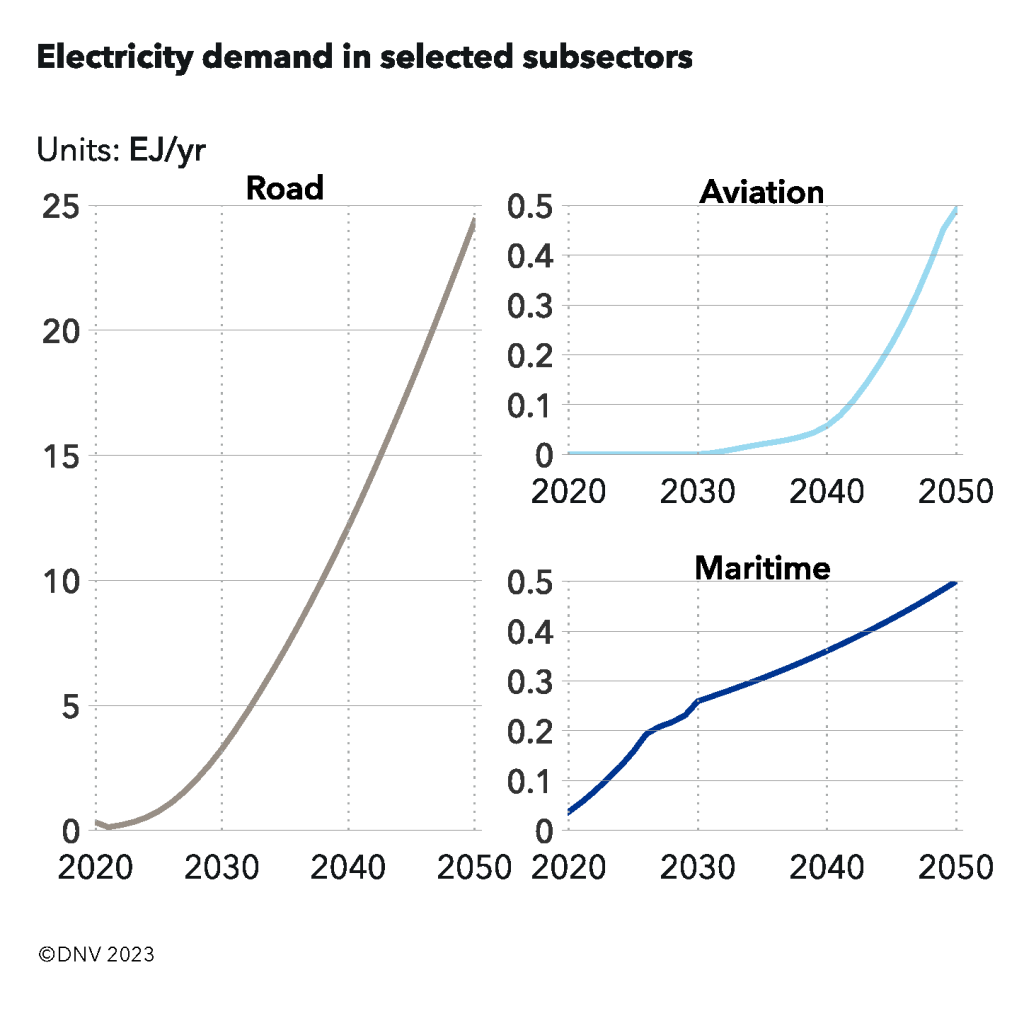
In their Power Grid Report, DNV had predicted that that electricity will double as a share of final global energy demand, from 19% to 38%, within the next 30 years. Despite the geopolitical and economic turmoil of 2022, 74% of respondents believe that the energy transition has either accelerated (45%) or not slowed (29%).
Maritime future fuel use
Driven by the decarbonization push, the fuel mix in the maritime sector will also change significantly over the coming decades, Neil James Slater highlights. By 2050, it will likely transition from being almost entirely oil-based to an energy mix comprising of 50% low- and zero-carbon fuels, 19% natural gas and 18% biomass.  Biofuels
Biofuels
To remind, in March, DNV released a technical update on the use of biofuels or biofuel blends to clarify the regulatory status and other considerations on the usage of such fuels.
Possible consequences from the use of biofuels:
- Microbial growth: Bacteria and mould may grow, causing filters and piping to clog.
- Oxygen degradation: Biodiesel could form deposits in piping and engine, compromising operational performance.
- Low temperature: The higher cloud point may lead to the clogging of filters at lower temperatures.
- Corrosion: Some types of hoses and gaskets could degrade, leading to loss of integrity, and interact with some metallic material to form deposits.
- Possible degeneration of rubber sealings, gaskets and hoses: Important to verify that these components can be used together with biofuel.
- Conversion: When switching from diesel to biofuel, fuel filters can become clogged.
Regions such as Europe, North America and Greater China are frontrunners in the uptake of battery electric vehicles (BEVs). In parallel, those regions are investing in hydrogen and hydrogen-based fuels as the most promising option for moving heavy goods over long distances.
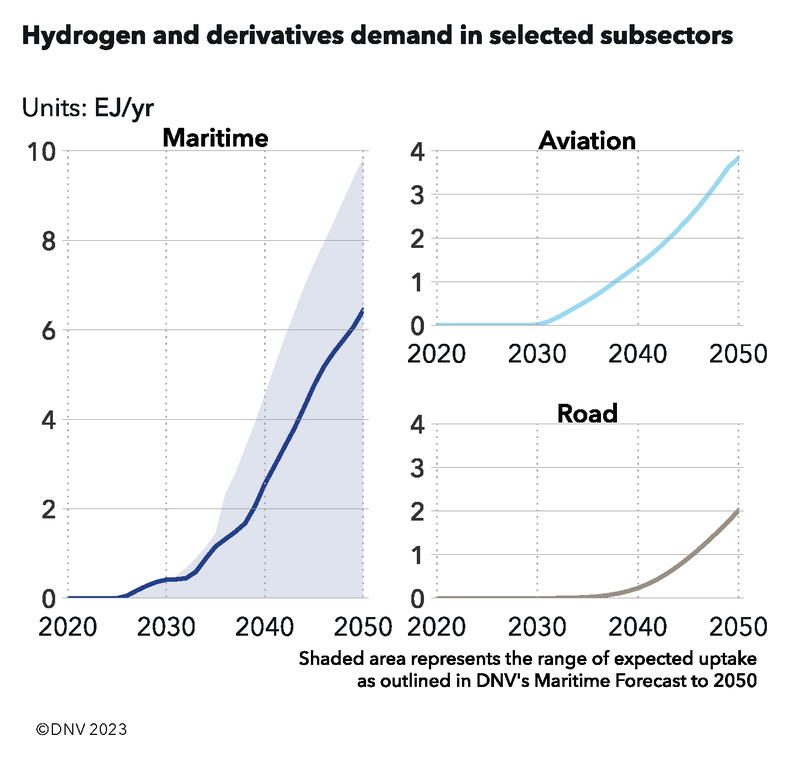 On the subject of hydrogen as marine fuel, ABS had published the The Sustainability Whitepaper: Hydrogen as Marine Fuel which explored the gas’ potential to reduce emissions from shipping. The research found:
On the subject of hydrogen as marine fuel, ABS had published the The Sustainability Whitepaper: Hydrogen as Marine Fuel which explored the gas’ potential to reduce emissions from shipping. The research found:
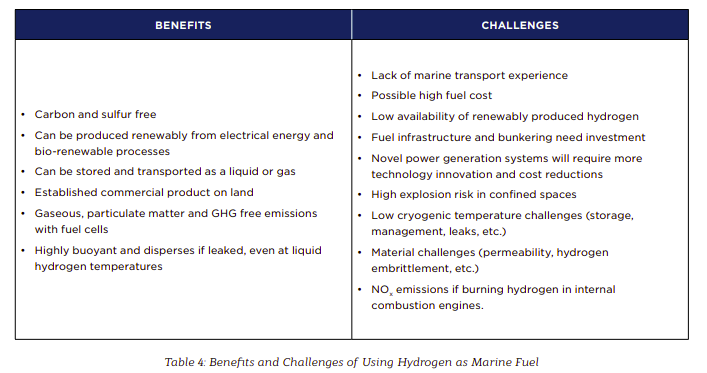
Governmental support
The report emphasises the importance of governmental and industry back-up to manage the rise in advanced biofuels for aviation and maritime, with the sustainable fuel expected to be more expensive than fossil fuel counterparts.
It is essential that policy makers accelerate efforts to incentivize research and development, pilot projects and commercial uptake of carbon-neutral and zero-carbon fuels across the transport sector to support mid-century net zero goals.
… said Remi Eriksen, Group President and CEO at DNV



































